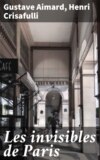Kitabı oku: «The Trapper's Daughter: A Story of the Rocky Mountains», sayfa 10
The hunter sighed.
"No, mother," he said, with an effort, "since I have seen you again, all the memories of my youth have revived; I know now the desire I had to see France again some day; the sight of you has made me understand that a man cannot voluntarily resign those home joys, whose charm he can only truly understand when unable to enjoy them. Hence I soon intend to remove you from this country disinherited by Heaven, and return to our native land."
"Alas!" she said, with an accent of soft reproach, "We should be so happy there; why not return at once?"
"Because it cannot be, mother; I have a sacred duty to accomplish here; but I pledge you my word of honour that when I have fulfilled the duty I have imposed on myself and am free, we will not remain an hour longer here. So have patience, mother; perhaps we may start for France within two months."
"May Heaven grant it, my child," the old lady said, sadly; "well, your will be done, I am prepared to wait."
"Thanks, mother; your kindness renders me happier than I can describe to you."
The old lady sighed, but gave no answer, and the little party marched silently in the direction of the Comanche village, the outskirts of which they reached at about three in the afternoon.
"Mother," Valentine said, "you are not yet used to Indian fashions; do not be frightened at anything you may see or hear."
"Am I not near you?" she said "What can I feel afraid of?"
"Oh!" he said, joyfully, "you are a true mother."
"Alas!" she answered, with a stifled sigh, "You are mistaken, child, I am only a poor old woman, who loves her son, that is all."
CHAPTER XIX
BLOODSON
White Gazelle had rejoined Bloodson, who was encamped with his band on the top of a hill, where the prairie could be surveyed for a long distance. It was night, the fires were already lit, and the rangers, assembled around the braseros, were supping gaily. Bloodson was delighted at seeing his niece again; both had a long conversation, at the end of which the Avenger, as he called himself, ordered the ranchero to approach.
Despite of all his impudence, it was not without a feeling of terror that worthy Andrés Garote found himself face to face with this man, whose glances seemed trying to read his inmost thoughts. Bloodson's reputation had been so long established on the prairies that the ranchero must feel affected in his presence. Bloodson was seated in front of a fire, smoking an Indian pipe, with White Gazelle by his side; and for a moment the ranchero almost repented the step he had taken. But the feeling did not last an instant; hatred immediately regained the upper hand, and every trace of emotion disappeared from his face.
"Come here, scoundrel," Bloodson said to him. "From what the señora has just said to me, you fancy you have in your hands the means of destroying Red Cedar?"
"Did I say Red Cedar?" the ranchero answered; "I do not think so, excellency."
"Whom did you allude to, then?"
"To Fray Ambrosio."
"What do I care for that scurvy monk?" Bloodson remarked, with a shrug of his shoulders; "his affairs do not concern me, and I will not trouble myself with them; other and more important duties claim my care."
"That is possible, Excellency," the ranchero answered, with more assurance than might have been assumed; "but I have only to deal with Fray Ambrosio."
"In that case you can go to the deuce, for I shall certainly not help you in your plans."
Andrés Garote, thus brutally received, was not discouraged, however; he shrugged his shoulders with a cunning look, and assumed his most insinuating tone.
"There is no knowing, Excellency," he said.
"Hum! That seems to me difficult."
"Less so than you fancy, Excellency."
"How so?"
"You bear a grudge against Red Cedar, I think?"
"How does that concern you, scoundrel?" Bloodson asked, roughly.
"Not at all; the more so as I owe him nothing; still, it is a different affair with you, Excellency."
"How do you know?"
"I presume so, Excellency; hence I intend to offer you a bargain."
"A bargain!" Bloodson repeated, disdainfully.
"Yes, Excellency," the ranchero said, boldly; "and a bargain advantageous to yourself, I venture to say."
"And for you?"
"For me too, naturally."
Bloodson began laughing.
"The man is mad," he said, with a shrug of his shoulders, and, turning to his men, added – "where the deuce was your head when you brought him to me?"
"Nonsense," White Gazelle said, "you had better listen to him; that will do you no harm."
"The señora is right," the ranchero eagerly replied; "listen to me, Excellency, that pledges you to nothing; besides, you will be always able to decline if what I propose does not suit you."
"That is true," Bloodson replied, contemptuously – "Speak then, picaro, and be brief."
"Oh, I am not in the habit of making long speeches."
"Come to the point."
"It is this," the ranchero said, boldly; "you wish, I do not know why, and do not care, to revenge yourself on Red Cedar; for certain reasons, unnecessary for me to tell you, I wish to avenge myself on Ambrosio; that is clear, I fancy?"
"Perfectly so – go on."
"Very well. Now this is what I propose to you – aid me to avenge myself on the monk, and I will help you with the bandit."
"I do not need you for that."
"Perhaps you do, Excellency; and if I did not fear appearing impudent to you, I would even say – "
"What?"
"That I am indispensable to you."
"Voto a Dios!" Bloodson said, with an outburst of laughter, "This is beyond a joke; the scoundrel is absolutely making fun of me."
Andrés Garote stood unmoved before the ranger.
"Come, come," the latter continued, "this is far more amusing than I at first fancied; and how are you indispensable to me?"
"Oh, Excellency, that is very simple; you do not know what has become of Red Cedar?"
"That is true; I have been seeking him in vain for a long time."
"I defy you to find him, unless I help you."
"Then you know where he is?" Bloodson exclaimed, suddenly raising his head.
"Ah! That interests you now, Excellency," the ranchero said, with a crafty look.
"Answer, yes or no," the ranger said, roughly; "do you know where he is?"
"If I did not, should I have come to you?"
Bloodson reflected for a moment.
"Tell me where he is."
"Our bargain holds good?"
"It does."
"You swear it?"
"On my honour."
"Good!" the other said joyfully; "now listen to me."
"Go on."
"Of course you are aware that Red Cedar and the Trail-hunter had a fight?"
"I am – go on."
"After the battle, all bolted in different directions; Red Cedar was wounded, hence he did not go far, but soon fell in a fainting fit at the foot of a tree. The Frenchman and his friends sought him on all sides, and I believe they would have made him spend a very unpleasant quarter of an hour if they had laid hands on him. Fortunately for him, his horse had carried him into the middle of the virgin forest, where no one dreamed of pursuing him. Chance, or rather my good fortune, I now believe, led me to the spot where he was; his daughter Ellen was near him, and paying him the most touching attention; it really almost affected me. I cannot tell you how she got there, but there she was. On seeing Red Cedar, I thought for a moment about going to find the French hunter, and telling him of my discovery."
"Hum! And why did you not carry out that idea, scoundrel?"
"For a very simple, though conclusive reason."
"Let us hear it," said Bloodson, who had begun to listen with extreme interest to the ranchero's wandering statement.
"This is it," he went on. "Don Valentine is a rough fellow; I am not in the odour of sanctity with him; besides, he was with a crowd of Apaches and Comanches, each a bigger scamp than the other; in a word, I was frightened for my scalp, and held off, as I might have plucked the chestnuts from the fire for another man's profit."
"Not badly reasoned."
"Was it now, Excellency? hence, while I was reflecting on what I had better do, a band of some ten horsemen came, I know not whence, to the spot where that poor devil of a Red Cedar was lying half dead."
"He was really wounded?"
"Oh, yes, and dangerously, I undertake to say; the leader of the party was a French missionary you must know."
"Father Seraphin?"
"The very man."
"What did he?"
"What I should certainly not have done in his place – he carried Red Cedar away with him."
"In that I recognise him," Bloodson could not refrain from saying. "And where did he take the wounded man?"
"To a cavern, where I will lead you whenever you like."
"You are not lying?"
"Oh, no, Excellency."
"Very good, go and sleep; you can count on my promise, if you are faithful to me."
"Thanks, Excellency; be at your ease, self-interest urges me not to deceive you."
"That is true."
The ranchero withdrew, and an hour later was sleeping as every honest man should do, who feels conscious of having performed his duty. The next morning at daybreak Bloodson's band set out. But in the desert it is often very difficult to find those you seek, owing to the nomadic life everybody is obliged to lead in order to gain his livelihood; and Bloodson, who wished first to consult with Valentine and his friends, lost much time before learning the exact spot where they were. At length, one of the scouts told him that the Frenchman was at Unicorn's winter village, and he proceeded there at once.
In the interim, Bloodson ordered Andrés Garote to watch Red Cedar's movements, as he did not like to take a decisive step till he had acquired a certainty. Nothing would have been easier than to go to Father Seraphin, and demand the surrender of the wounded man; but he felt a repugnance to this. Bloodson shared in the respect the holy missionary inspired all within the Far West; and he would not have dared to summon him to surrender his guest, certain as he was beforehand that the other would peremptorily refuse; at the same time he did not like to employ violence to wrest his prey from a man whose character he admired. He must, therefore, await until Red Cedar, cured of his wounds, quitted his protection; and this Bloodson did, though having his movements watched.
At length Andrés Garote appeared, all joyous, in Bloodson's camp; he was the bearer of excellent news: Father Seraphin, after curing Red Cedar, had installed him in a jacal, where he and his daughter lived like two anchorites. Bloodson uttered a shout of joy at this news. Without even taking time to reflect, he leaped on his horse, leaving the temporary command of the band to his men, and started off at full speed for Unicorn's village.
The distance was not great, and the ranger covered it in less than two hours. Bloodson was beloved by the Comanches, to whom he had frequent opportunities of being useful; hence he was received by them with all the honours and ceremonies employed in such cases. Unicorn, accompanied by some of the principal chiefs of the tribe, came to receive him a short distance from the village, yelling, firing their muskets, and making their horses curvet. Bloodson gladly yielded to the chief's wishes, and galloped along by his side.
The Comanches are excessively discreet; they never take the liberty of asking questions of their guests before the latter authorise them. So soon as Bloodson had taken his seat by the fire of the council lodge, and smoked the great calumet of peace, Unicorn bowed to him gravely, and took the word.
"My paleface brother is welcome among his red friends," he said; "has my brother had a good hunt?"
"The buffaloes are numerous near the mountains," Bloodson answered; "my young men have killed many."
"All the better; my brother will not suffer from famine."
The ranger bowed his thanks.
"Will my brother remain some days with his red friends?" the chief again asked; "they would be happy to have him among them for a season."
"My hours are counted," Bloodson answered. "I merely intended paying a visit to my brothers to ask after their fare, as I passed their village."
At this moment Valentine appeared in the doorway.
"Here is my brother, Koutonepi," Unicorn said.
"He is welcome," the ranger said; "I wished to see him."
"What accident has brought you here?" the hunter asked him.
"To tell you where Red Cedar is hidden at this moment," Bloodson answered, distinctly.
Valentine started; and bent on him a piercing glance.
"Oh, oh," he said, "that is great news you give me."
"I do not give it, but sell it to you."
"What? explain yourself, pray."
"I will be brief. There is not a man on the prairies who has not a terrible account to settle with that vile bandit?"
"That is true."
"The monster has burdened the earth too long – he must disappear."
Bloodson uttered these words with such an accent of hatred, that all present, although they were men endowed with nerves of steel, felt a shudder course through their veins. Valentine looked sternly at the ranger.
"You owe this man a heavy grudge?" he said.
"Greater than I can express."
"Good, go on."
At this moment Father Seraphin entered the lodge, but was not noticed, so greatly was the attention of the audience concentrated on Bloodson. The missionary stood motionless in the darkest corner, and listened.
"This is what I propose," Bloodson went on. "I will reveal to you where the villain is lurking; we will spread so as to envelope him in an impassable circle, and if you or the chiefs here present are luckier than I, and seize him, you will deliver him into my hands."
"What to do with him?"
"To take an exemplary vengeance on him."
"I cannot promise that," Valentine said slowly.
"For what reason?"
"You have just given it: there is not a man on the prairie but has a terrible account to settle with this villain."
"Well?"
"The man he has most outraged is, in my opinion, Don Miguel de Zarate, whose daughter he so basely murdered. Don Miguel alone has the right to deal with him as he thinks proper."
Bloodson gave a start of disappointment.
"Oh, were he here!" he exclaimed.
"Here I am, sir," the hacendero replied as he stepped forward; "I too have vengeance to take on Red Cedar; but I wish it to be great and noble, in the light of the sun, and the presence of all: I do not wish to assassinate, but to punish him."
"Good," Bloodson exclaimed, stifling a cry of joy; "our thoughts are the same, caballero; for what I desire is to deal with Red Cedar, according to Lynch Law, in its entire rigour, on the very spot where he committed his first crime, and in the sight of the population he has horrified. In the Far West, I am not only called the Son of Blood, but also the Avenger and the judge."
After these words, spoken with feverish energy, there was a gloomy silence which lasted some time.
"Vengeance is mine, saith the Lord," a voice said, which made the hearers start.
All turned round; Father Seraphin, with his crucifix in his hand, and head erect, seemed to command them all by the grandeur of his evangelic mission.
"By what right do you make yourselves the instruments of divine justice?" he continued. "If this man was guilty, who tells that repentance has not come at this hour to wash the stains from his soul?"
"Eye for eye, tooth for tooth," Bloodson muttered in a hoarse voice.
These words broke the charm that enchained the audience.
"Eye for eye, tooth for tooth," they exclaimed wrathfully.
Father Seraphin saw he was conquered: he understood that all reasoning would fail with these blood-thirsty men, to whom the life of their fellow men is nothing, and who rank vengeance as a virtue.
"Farewell," he said in mournful voice; "farewell, poor misguided men. I dare not curse you, I can only pity you; but I warn you that I will do all in my power to save the victim you wish to immolate to your odious passions."
And he went out of the lodge.
When the emotion caused by the priest's words had calmed down, Don Miguel walked up to Bloodson, and laid his hand on the one the ranger offered to him.
"I accept Lynch Law," he said.
"Yes," all present shouted, "Lynch Law."
A few hours later, Bloodson regained his camp, and it was after this interview that Valentine had the conversation with Don Pablo, as he returned from Red Cedar's jacal, which we described at the beginning of the volume.
CHAPTER XX
RED CEDAR
Now that we have explained the incidents that took place during the six months that had elapsed between Doña Clara's death and the conversation in the cavern during the storm, we will resume our narrative where we left it at the end of chapter three.
Only a few minutes after the hacendero's son had left, the door of the jacal was roughly opened – four men entered. They were Red Cedar, Fray Ambrosio, Sutter, and Nathan. They appeared sad and gloomy, and the water poured down from their clothes as if they had come out of the river.
"Halloh," the monk said; "what! No fire or light, and nothing in the calli to greet us. You do not care much for us, I fancy."
Red Cedar kissed his daughter on the forehead, and turning to Fray Ambrosio, to whom he gave a passionate glance, he said roughly —
"You are in my house, my master: do not oblige me to remind you of that fact; so begin by being civil to my daughter, if you do not wish me to give you a lesson."
"Hum!" the monk remarked with a growl; "Is this young woman so sacred, that you should fire up at the slightest word addressed to her?"
"I do not fire up," the squatter replied, sharply, as he struck the table with his fist; "but your way of speaking does not please me, I tell you; so do not oblige me to repeat it."
Fray Ambrosio made no answer; he understood that Red Cedar was in a state of mind unfavourable for a discussion; he therefore prudently refrained from any remark that might lead to a quarrel, which he seemed as anxious to avoid as the squatter to pick it. During the exchange of these few sentences, Ellen, helped by her brothers, had lit a torch of candle wood, rekindled the fire, the absence of which was felt, and placed on the table a meal, sufficient, if not luxurious.
"Caballeros," she said in her gentle voice, "you are served."
The four men sat round the table with the eagerness of hungry persons who are desirous of breaking a long fast. Before raising the first morsel to his lips, the squatter, however, turned to his daughter.
"Ellen," he said to her kindly, "will you not sit down with us?"
"Thank you, father, but I am not hungry; it would be really impossible for me to swallow the least morsel."
The squatter sighed, but raising no objection, he began to serve his guests, while Ellen retired into the darkest corner of the shanty. The meal was sad; the four men seemed busy in thought, and ate quickly and silently. When their hunger was appeased, they lit their pipes.
"Father," Nathan suddenly said to Red Cedar, who was sorrowfully watching the smoke ascend in spirals to the roof; "I have found a trail."
"So have I," the monk remarked.
"And I, too," the squatter said; "what of that?"
"What of that?" Fray Ambrosio shouted. "Canarios, gossip, you take things very lightly. A trail in the desert always reveals an enemy."
"What do I care for that?" Red Cedar replied, with a shrug of his shoulders.
"What?" the monk shouted, as he sprang up; "That is very fine, on my word; to hear you, one might fancy you were an entire stranger to the question, and that your life is not at stake like ours."
"Who tells you that I wish to defend it?" the squatter replied, giving him a look which made his eyes fall.
"Hum!" the monk remarked, after a moment's silence; "I can understand that you do not cling to life; you have gone through so much, that you would not regret death; but there is one thing you forget, gossip, not referring to myself, though I have a right to reproach you."
The squatter carelessly shook the ashes out of his pipe, filled it again, and went on smoking as if not paying the slightest attention to the monk's remarks. The latter frowned and clenched his fists, but recovering his temper almost immediately, he continued, with feigned indifference, while playing with his knife —
"Yes, you forget one thing, gossip, which however, is worth remembering."
"What is it?"
"Your children, cospita!"
The squatter gave him an ironical glance.
"Oh, por Dios santo!" the monk went on; "I do not refer to your sons, for they are strong and resolute men, who can always get out of a scrape; I do not trouble myself about them at all."
"About whom, then?" the squatter asked, looking at him sharply.
"Why, for your daughter Ellen, canarios! What will become of her, if you die?" the monk said, with that boldness peculiar to timid persons, who wish to know at once if the mine they have fired will crush them. The squatter shook his head sadly.
"That is true," he said, with a glance at his daughter.
The monk smiled – the blow had told, so he went on.
"In destroying yourself, you destroy her," he said; "your obstinacy may cause her death, so take care."
"What is to be done?" the squatter asked.
"Take our precautions, voto de Dios! believe me, we are watched; remaining longer here would be the utmost imprudence."
The squatter's sons nodded their assent.
"It is evident," Sutter observed, "that our enemies have discovered our trail."
"And that they will soon be here," Nathan added.
"You hear?" the monk went on.
"Once again I ask, what is to be done?" Red Cedar asked.
"Caspita, be off as speedily as possible."
"Where can we go at this advanced season of the year? The snow will soon cover the ground, and interrupt all communication; if we leave the jacal, we run a risk of dying of hunger."
"Yes, if we remain in the desert," the monk observed, in an insinuating voice.
"Where do you propose going then?" the squatter asked.
"What do I know? There is no lack of towns, I suppose, on the Indian border; we might, if absolutely necessary, return to the Paso del Norte, where we have friends, and are certain of a kind reception."
Red Cedar looked him full in the face, and said ironically —
"Out with your whole thought, señor Padre; you have an object in wishing to return to the Paso, so let me know it."
"Caspita, you are as clever as I am," the monk exclaimed, blushing the while; "what need have we to humbug one another?"
The squatter rose, and kicked back his stool.
"You are right," he said passionately, "let us deal openly with one another. I wish nothing better, and to give you an example, listen to me. You have never lost out of sight the reason that made you enter the desert; you have only one object, one desire, to reach the rich placer, the situation of which you learned by assassinating a man. Neither the fatigue you have endured, nor the peril you have incurred, has made you renounce your scheme; the hope of a rich crop of gold blinds you, and makes you mad. Is it so or not?"
"It is true," the monk coolly replied, "what next?"
"When our band was destroyed, and completely dispersed, this was the reasoning you employed – a reasoning," he added, with a bitter smile, "which does honour to your sagacity and firmness of character; 'Red Cedar all but knows the site of the placer. I must induce him to return with me to the Paso, to form another band, because if I leave him alone in the desert, so soon as my back is turned, he will go in search of the treasures, and carelessly discover it.' Have I not guessed aright, gossip?"
"Nearly so," the monk answered, furious at seeing his plans so clearly read through.
"I thought so," Red Cedar continued; "but, like all bad men, gangrened to the heart, you went beyond your object, by attributing to me the same sordid instincts you possess; and you thought that because I am an assassin, I may be a thief: that is the error in which you fell, gossip. Understand me," he said, stamping his foot violently; "were the coveted treasure at this moment beneath my heel, I would not stoop down to pick up a nugget. Gold is nothing to me, I despise it. When I consented to guide you to the placer you naturally assumed that avarice led me to do so; but you are mistaken; I had a more powerful and nobler motive – revenge. Now, do not trouble me more about your accursed placer, for which I care as little as I do for a nut. And with that, good night, gossip; I am going to sleep, or try to do so, and recommend the same to you."
And, without awaiting the monk's reply, the squatter turned his back and stalked into an inner room. For some time past, Ellen had been asleep, and so the monk remained alone with the squatter's sons. For some minutes they remained in silence.
"Bah," the monk at length said cautiously, "however much he may struggle, it must happen."
Sutter shook his head dubiously.
"No," he said, "you do not know the old one; once he has said no, he sticks to it."
"Hum!" Nathan added, "He has greatly changed lately; of all his old character, he seems only to have kept his obstinacy; I am afraid you will fail, señor Padre."
"Live and learn," the latter said gaily; "tomorrow has to come; in the meanwhile, gentlemen, let us follow his advice, and go to sleep."
Ten minutes later all slept, or seemed to sleep, in the jacal: the storm lasted the night through, howling furiously. At daybreak, the squatter rose, and went out to see what sort of weather it was. The day promised well; the sky was pure, and the sun rose radiantly. Red Cedar, therefore, started for the corral to saddle his horse, and those of his comrades. Before leaving the household, however, he looked around, and suddenly uttered an exclamation of surprise as he started back. He had noticed a horseman coming up at full speed.
"Father Seraphin!" he muttered in astonishment; "What serious reason can bring him here, at such an hour and in such haste?"
At this moment the other entered the keeping room, and the squatter heard the sound of the footsteps behind him. He turned quickly.
"Hide yourselves," he said hoarsely.
"What's the matter?" the monk asked furiously, as he stepped forward.
With one blow of his fist, the squatter hurled him to the middle of the room.
"Did you not hear me?" he said passionately. But, although Red Cedar's blow had been so powerful, he could not prevent the monk recognising Father Seraphin.
"Ah, ah," he said, with an ugly smile, "Father Seraphin! If our friend wished to confess, was not I enough? He need not only have told me, instead of sending for that European magpie."
Red Cedar here turned as if a viper had stung him, and gave the three men such a glance of ferocity, that they involuntarily recoiled.
"Villain," he said, in a hollow voice, and a terrible gesture, "I know not what prevents me killing you, like the dog you are. If one of you dare utter a syllable against this holy man, by Heaven, I will flay him alive. Hide yourselves, I insist."
Subjugated by the squatter's accent, the three men left the room without replying, and ten minutes later Father Seraphin checked his horse, and dismounted in front of the jacal. Red Cedar and his daughter hurried forward to meet the father, who walked into the hut, wiping the perspiration that stood on his forehead. Red Cedar offered him a butaca.
"Sit down, father," he said to him, "you are very hot; will you take some refreshment?"
"Thanks," the missionary answered, "but we have not a moment to lose, so listen to me."
"What has happened, father? Why have you come in such haste?"
"Alas!" he went on, "because you are menaced by a terrible misfortune."
The squatter turned pale. "It is but just," he muttered, with a frown; "the expiation is beginning."
"Courage, my children," the missionary said, affectionately, "your enemies have discovered your retreat, I know not how; they will be here tomorrow – perhaps today – you must fly – fly at once."
"For what good?" the squatter remarked; "the hand of God is in this – no man can escape his destiny; better to wait."
Father Seraphin assumed a serious air, and said in a stern voice —
"God wishes to try you; it would be cowardice, suicide, to surrender yourself to those who desire your death, and Heaven would not pardon you for doing so. Every living creature must defend life when attacked. Fly – I bid you – I order you."
The squatter made no reply.
"Besides," Father Seraphin continued, in a tone he strove to render gay, "the storm may blow over; your enemies, not finding you here, will doubtless abandon the pursuit; in a few days, you will be able to return."
"No," the squatter said disconsolately, "they desire my death. As you order me to fly, father, I will obey you, but, before all, grant me one favour."
"Speak, my son."
"I," the squatter went on, with ill-concealed emotion, "am a man; I can, without succumbing, support the most excessive fatigue, brave the greatest dangers; but – "
"I understand you," the missionary quickly interrupted him; "I intend to keep your daughter with me. Be at your ease, she shall want for nothing."
"Oh, thanks, thanks, father!" he exclaimed, with an accent such a man might have been thought incapable of.
Ellen had hitherto listened to the conversation in silence, but now she stepped forward, and placing herself between the two men, said with sublime dignity:
"I am most grateful to both of you for your intentions with regard to me, but I cannot abandon my father; I will follow him wherever he goes, to console him and aid him in suffering the retributions Heaven sends on him, as a Christian should do."
The two men prepared to interrupt her.
"Stay!" she said, warmly; "hitherto I have suffered through my father's conduct, for it was guilty; but now that repentance fills his soul, I pity and love him. My resolution is unchangeable."
Father Seraphin gazed at her in admiration.
"It is well, my child," he said; "Heaven will remember such pure and noble devotion."
The squatter pressed his daughter to his heart, but had not the strength to utter a word – he had never felt such sweet emotion before. The missionary rose.
"Farewell," he said, "and take courage; put your trust in God, who will not abandon you. I will watch over you at a distance. Farewell, my children, and bless you. Go, go, without delay."
Then, tearing himself by an effort from Red Cedar's arms, Father Seraphin remounted, dug his spurs into his horse's flanks, and started at full speed, after giving his protégés a parting wave of the hand.










